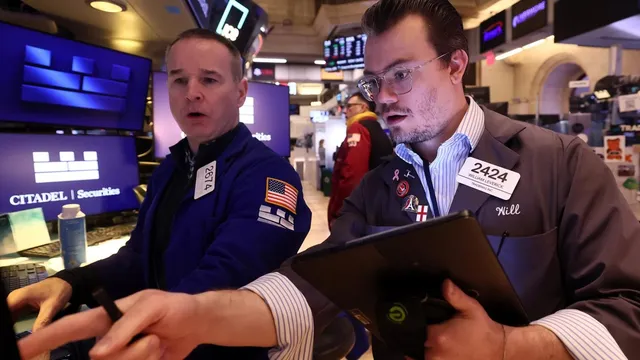
UK inflation soars to 3%, raising concerns over economic growth
2025-02-21 21:29- Inflation in the UK rose to 3% in January 2025 from 2.5% the previous month, surpassing analysts' expectations.
- The increase was driven by rising prices in airfares, food, and the impact of new VAT rules on private school fees.
- The rise in inflation raises concerns about the Bank of England's ability to lower interest rates amid weak economic growth.
Express your sentiment!
Insights
In January 2025, the inflation rate in the United Kingdom spiked to 3%, marking its highest level in nearly a year. This increase was unexpected, as economists had predicted a rise only to 2.8%. The surge in inflation was primarily attributed to higher airfares, food costs, and private school fees, exacerbated by a recent VAT hike imposed by the new Labour government. The Office for National Statistics reported that core inflation, which excludes the prices of volatile items, also increased to 3.7%. These developments raised concerns about the Bank of England's ability to lower borrowing costs amid such inflationary pressures. The Bank of England had already cut interest rates earlier this month, reducing the benchmark rate to 4.5% in light of lackluster economic growth, reducing its economic growth forecast for the UK from 1.5% to 0.75%. Analysts believe that even though inflation is expected to rise in the coming months due to increased domestic energy prices, the central bank might continue with cautious monetary policy, suggesting that further rate cuts may occur gradually. As inflation climbed beyond the Bank's 2% target, it has generated concerns among policymakers about the potential impacts on household budgets and consumer spending. The recent rise in inflation is viewed as a potential roadblock for the government's ambitions to stimulate economic growth, following the Labour party’s election victory in July 2024. Although some economists anticipate a gradual easing of inflation pressures later in the year, the immediate future appears challenging for the government as it strives to balance its growth agenda against rising living costs. In response to these economic shifts, the Monetary Policy Committee of the Bank of England is faced with a delicate balancing act. While there are pressures to act on inflation, the current economic climate emphasizes the necessity for caution. With ongoing uncertainties regarding energy prices and the potential for weaker wage growth, any further adjustments to interest rates may hinge on how inflation trends in the coming months.
Contexts
The UK's inflation rate has significant implications for the economy, businesses, and consumers as of January 2025. Analyzing the current inflation rate, which stands at an elevated level, highlights the ongoing challenges faced by policymakers in controlling price growth amid various domestic and global pressures. The persistent inflation, in combination with rising interest rates implemented by the Bank of England, aims to manage demand but could have the unintended consequence of stifling economic growth and negatively impacting consumer spending. As inflation affects purchasing power, households are feeling the strain; their disposable income is eroded, leading to a tighter budget for essentials and non-essential goods alike. This scenario can lead to decreased consumer confidence, where spending may slow down further, thus impacting retailers and the broader economy. Additionally, businesses are confronted with increased input costs, forcing many to consider raising their prices. This cycle can lead to wage demands from employees as they seek to keep pace with rising living costs, which in turn can further contribute to inflation if not managed carefully. The implications extend beyond just consumer behavior; they also affect government policy and economic forecasts. The government's response to inflation usually involves a combination of fiscal measures and monetary policy adjustments. As inflation remains a top concern, policymakers are tasked with striking a balance between curbing inflation and fostering a conducive environment for growth and employment. Further complicating the situation are external factors such as international supply chain disruptions and geopolitical tensions, which may continue to influence inflationary pressures. In conclusion, the implications of the January 2025 inflation rate in the UK encompass a multifaceted challenge involving consumers, businesses, and policymakers. Addressing inflation is vital for economic stability, but it requires careful management to avoid triggering recessionary conditions. As the situation evolves, the effectiveness of the measures taken will determine the trajectory of the UK economy in the forthcoming months and years.